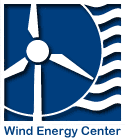The United States does not have any offshore wind turbines installed, despite their success in Europe for 25 years. A complicated regulatory regime, uncertain financial incentives, stakeholder opposition, and intensive data requirements contribute to the lack of progress in the United States. Extensive biological, social, and technical data are required as part of the environmental permitting process. Generating these data, at the temporal and spatial scales appropriate for assessment documentation, often results in lengthy delays in the permitting process. This presentation examines whether marine spatial planning has helped with the collection and analysis of data for offshore wind energy development in Germany, Denmark, and Rhode Island. Insights from these cases are applied to potential offshore wind energy developments in US federal waters.
Could marine spatial planning help offshore wind energy in the US?
Date:
Thursday, September 8, 2016 - 4:00pm
Location:
Gunness Student Center conference room in Marcus Hall
Year:
2016
Semester:
Speaker(s):

